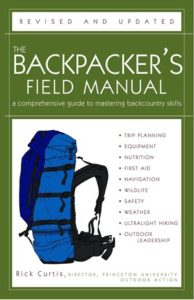I’ve been receiving emails about the recent online publication of a study in the Annals of Emergency Medicine titled “Ibuprofen Prevents Altitude Illness: A Randomized Controlled Trial for Prevention of Altitude Illness With Nonsteroidal Anti-inflammatories.” the study was highlighted by several of the health blogs and newspapers.
Eighty-six study participants took either ibuprofen 600 mg or placebo three times a day, beginning 6 hours prior to ascent from 4,100 feet (1,240 meters) to 12, 570 feet (3,810 m) in the White Mountains of California. The study looked at the incidence and severity of acute mountain sickness (AMS) as measured by the Lake Louise Questionnaire AMS score.
The ideal way to prevent AMS is to ascend slowly and acclimatize. Some folks don’t want to do this, others may not be able to do it, and some folks still need assistance from medications. The standard has been acetazolamide (Diamox) which is well studied and received an endorsement in the recent WMS Consensus Guidelines for Prevention and Treatment of Altitude Illness.
Acetazolamide (Diamox) works by stimulating breathing, which facilitates acclimatization. We don’t know how ibuprofen, an anti-inflammatory medication, works in AMS treatment. It might dampen an inflammatory component to AMS. This remains an active area of research.
In the recent study 69% of the people taking placebo and 43% of the ibuprofen group developed AMS. The severity of the AMS score was less in the ibuprofen group, but it did not meet the predetermined level of significance the authors hoped for.
Ibuprofen is appealing because it is non-prescription and readily available. Both medications have their side effects – pick your poison. This study suggest ibuprofen might work faster than acetazolamide, which should be started the day prior to ascent.
I don’t think this study knocks acetazolamide (Diamox) from the altitude medication podium. I’m always skeptical of the latest and greatest drug for altitude illness. They come and they go. We need to see this work replicated, controlled for ascent profile, dehydration and other causes of headache and compared head-to-head with acetazolamide.
In the meantime , given no contraindications or adverse side effects,it is reasonable to use Ibuprofen as a non-prescription medication for prevention of AMS symptoms. If you have a history of AMS talk with your doctor about your choice of medication. Acetazolamide, with it’s proven effect on acclimatization, and it’s ability to smooth out erratic breathing during sleep,might be a better choice for you.


